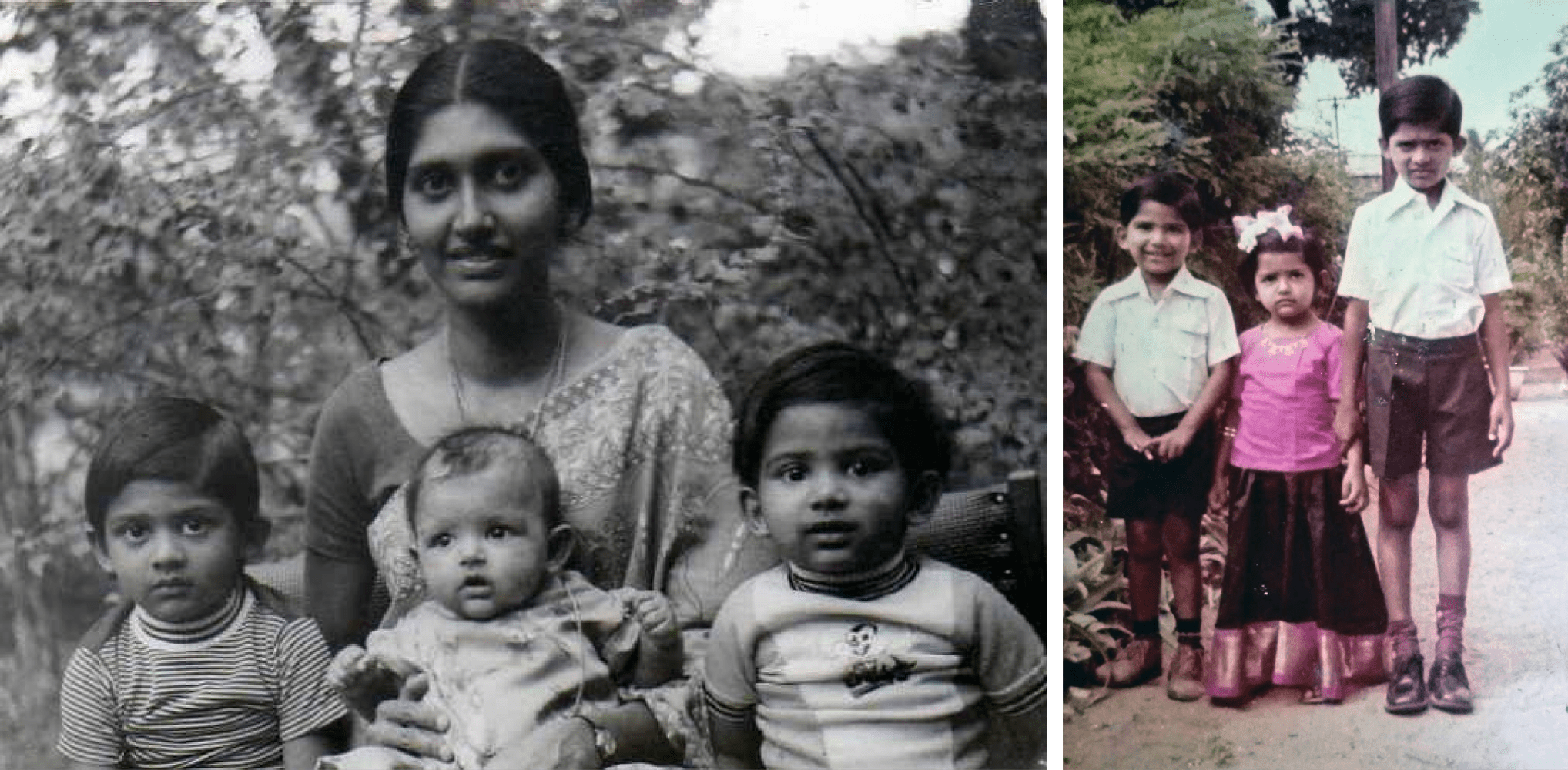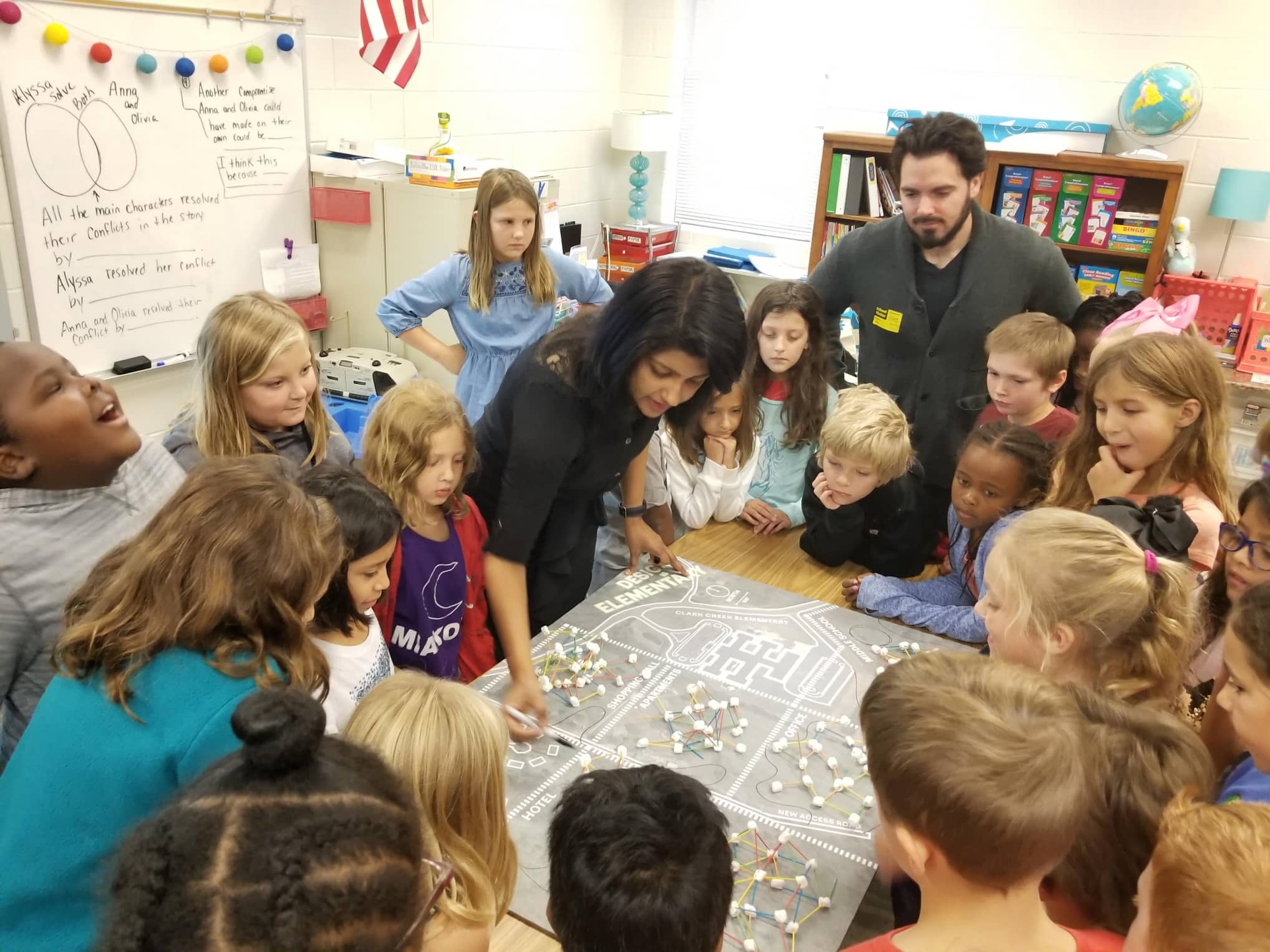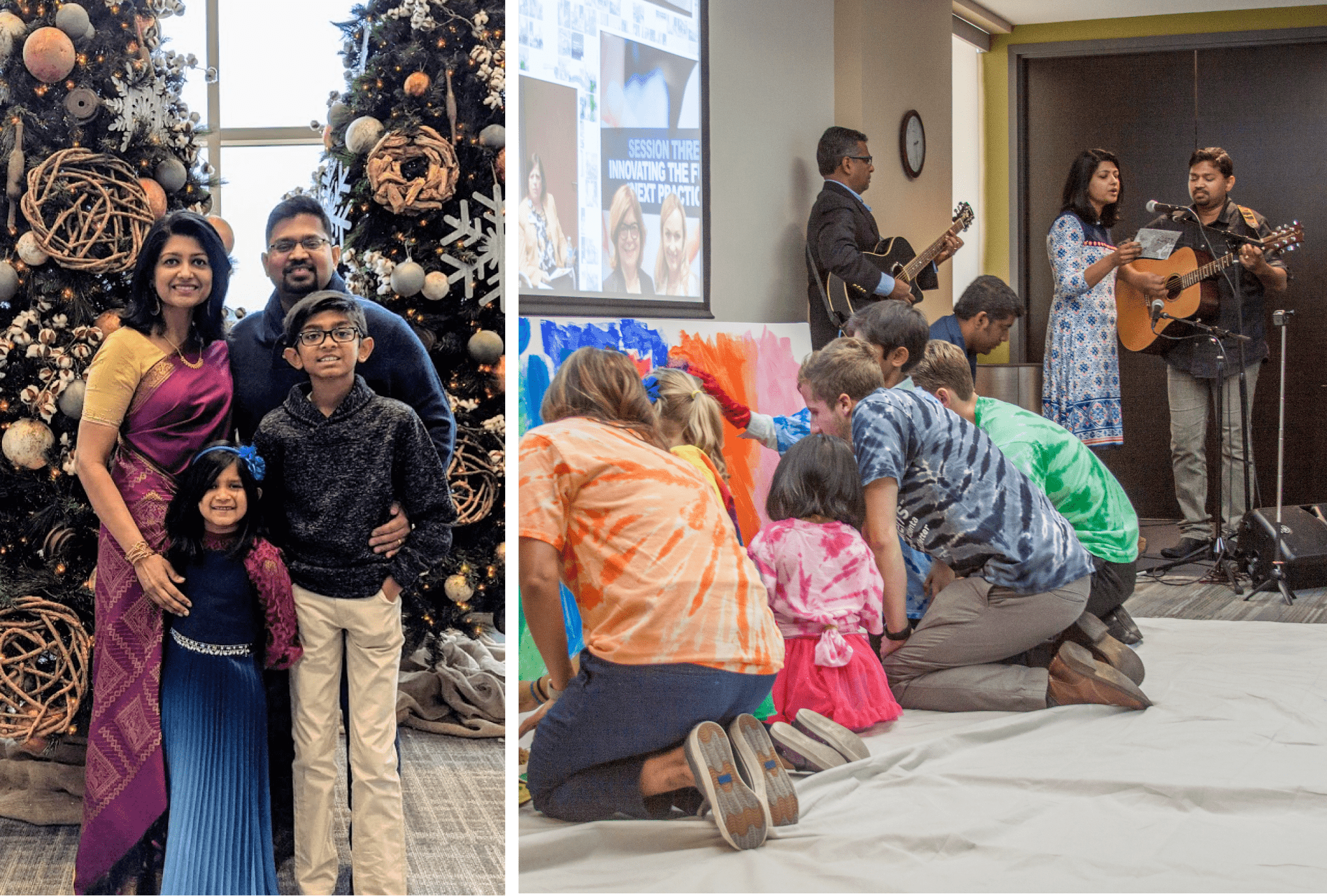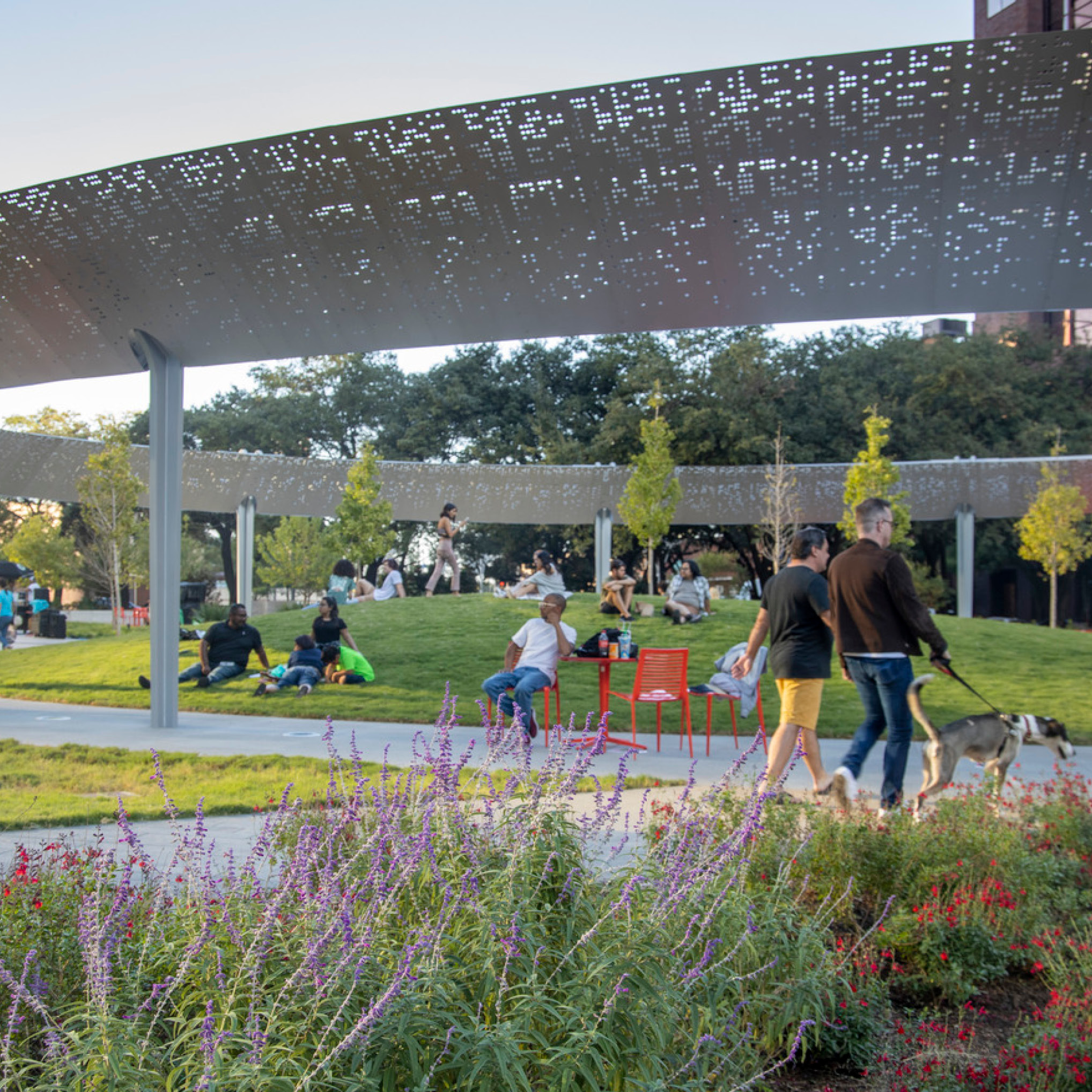
How a Decades-Old Lesson on Teamwork Inspired Sheba Ross Titus to Solve Problems for a Living
The most valuable lesson Sheba Ross Titus learned during her undergraduate studies was that her career in architecture would be like a team sport – she would need to meld her and her colleagues’ expertise to bring projects to life.
That was the early 2000s in Chennai, India, where Ross Titus grew up and chose to pursue architecture to appease her desire to be a gamechanger in her community. Two decades later, she’s still putting the lessons from her undergraduate years into practice as a Principal and Global Practice Director, Cities and Communities.
“Yes, you can do incredible things by yourself, but you can do better things if you surround yourself with people who are different than you and have different strengths than you,” Ross Titus said, reflecting on her career so far.

Finding Her Rhythm in Music and Life
Ross Titus’ training on effective teams began long before college. Her parents enrolled all three of their children in vocal classes at an early age, hoping to instill in them an appreciation for music and a discipline with which to live their lives. Ross Titus found the music lessons to be an inconvenience initially, but her mom kept telling her she would one day realize how valuable they were.
Ross Titus was also the creative problem solver in her family. Any time her mom took her to the gift shop to pick out a gift for someone, Ross Titus opted to make something herself because she didn’t think anything at the store was good enough for the recipient. And she’d sometimes make her own clothes, repurposing what she already had, because it gave her a chance to express herself.
“You’re never satisfied with things just the way you are. I think you need to do architecture because then you’ll have the ability to create something out of nothing,” her mom would tell her.
Architecture wasn’t a popular path in India at the time, and Ross Titus was one of few women to enroll in the architecture program at Anna University in her hometown of Chennai, India. The program exposed her to the power of design, requiring all students to travel across urban and rural India and learn how people engage with the built environment.
That’s where Ross Titus realized her childhood training in music had taught her to be a better listener for life and in turn, a better teammate.
“Architecture is often thought about in terms of sophisticated design and buildings,” she said. “My experiences in college brought people to the center – it’s about who we are serving. And if there’s something I can do to connect the dots and elevate their standard of living, that’s where I want to be.”
Architecture is often thought about in terms of sophisticated design and buildings. My experiences in college brought people to the center – it’s about who we are serving.
From Architecture to Urban Design
When Ross Titus graduated from Anna University in 2000 with her bachelor’s degree in architecture, it wasn’t the norm for women in India to continue their education beyond their undergraduate studies. But Ross Titus’ father encouraged her to keep learning and advancing in her career – even if it meant leaving her home country to do so.
In 2002, Ross Titus enrolled in a master’s program in urban design at University of Colorado Denver with plans to gain a global perspective on her profession. When she landed in Denver that January, she peered out the aircraft window at the snow-capped city and thought, “What am I doing?” She didn’t know anyone in Colorado at the time and had never experienced those frigid temperatures.
Her discomfort melted during her first graduate school class, where talking about familiar concepts in architecture and urban planning helped her feel at home again. Studying in Denver, which is considered a haven for urban designers because of its visionary but pragmatic planning, also helped her see firsthand the impact of her profession on a community and its people.
She decided to launch her career on the East Coast upon graduating UC Denver. After her first job as a campus planner at The Blanchard Group in Richmond, VA, she soon landed at tvsdesign, an architecture and design firm in Atlanta, where she quickly earned her supervisors’ trust because of her people-centered approach to urban design.
Manny Dominguez supervised Ross Titus at tvsdesign and has remained a longtime mentor over the years.
“From day one, Sheba somehow made everyone better – better in our approach, better people, better in our collaborative and just better as a whole team,” Dominguez said. “We all saw Sheba’s design approach and methodology to create inspiring visions for our projects. It didn’t take long before everyone was following her lead.”

Ross Titus joined HKS in 2013, working out of the Atlanta office where she hoped to advance her career and settle in a family-friendly city with her husband and two children. One of her most memorable projects was a master plan for the Children’s Healthcare of Atlanta, where the HKS team redefined visioning by organizing a series of exploration sessions with experts from fields outside of healthcare – such as Toyota, the Ritz Carlton, and Disney – to gather cues for transforming the patient experience and fueling better outcomes.
Building Bridges in Every Pursuit
As an urban designer, Ross Titus plays a pivotal role in building camaraderie within the HKS Atlanta office by organizing team building activities and charrettes.
She tells her peers that their work doesn’t just mean solving community problems through design; it also means going the extra mile to help stakeholders identify the root of their problems, too. Her ongoing work with the nonprofit Soccer in the Streets and Atlanta City Studio, for example, addresses the play equity gap in Atlanta’s underserved communities by building soccer fields on vacant land around light rail train stations and under elevated tracks.
“I love when clients say, ‘I knew you would give us what we want but I’m so grateful you chose to give us what we need,’” Ross Titus said. “One of the biggest blessings for an urban planner is being able to tell them, ‘Yes, what you want is a hospital, but what you need is something that can shift your population’s health because your top risks are obesity and lung disease.’”
Ross Titus’ schedule is packed with projects these days, but her family remains her passion and priority.
Ross Titus dedicates her free time toward new memories with them, including composing music with her husband who is a scientist by profession and shares her love of music.
Occasionally, she’ll blend her personal and professional worlds by bringing her 8-year-old daughter and 11-year-old son to site visits and brainstorming sessions where a child’s perspective is needed. She says she wants them to experience the different dimensions of her work and be inspired to dream big for their future, just as her parents encouraged her to do when she was their age.
In addition to her family, Ross Titus stays connected to the community by mentoring young students and professionals, helping schools craft STEM curriculum for their capstone programs, teaching life lessons through music in her local church and working on urban design initiatives outside HKS.

In 2019, HKS Architect Sarah Nelson-Woynicz nominated Ross Titus for the HKS Global Limitless Thinker Award, which she won in recognition of her commitment to lifelong learning.
“She’s incredibly humble and approaches everything with curiosity. She’s there to ask questions and not only ask the questions, but to ask them in a genuine way,” said Woynicz-Sianozecki, who has worked with Ross Titus on a number of HKS Atlanta initiatives and mentorship projects that serve the city.
In 2020 the Urban Land Institute in Atlanta, where Ross Titus is an active volunteer, named her in their inaugural cohort of the top 24 influential women in real estate and land use in the city.
“Community service is the best platform for servant leadership,” Ross Titus said in an interview about the award. “It is where I can authentically give without expecting anything in return. But the beauty of such service is that we are guaranteed to be struck by volunesia: a moment when you forget that you are volunteering to help change lives, because it’s changing yours.”



